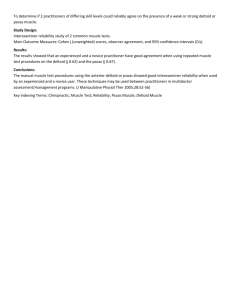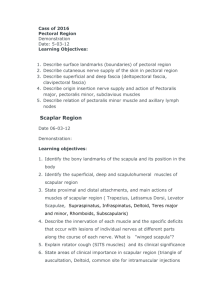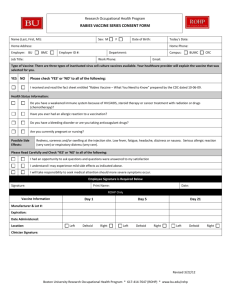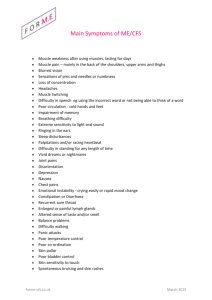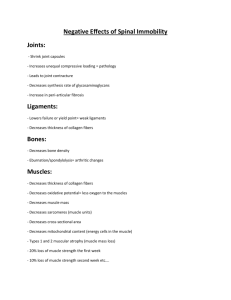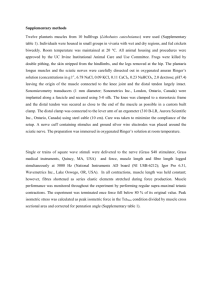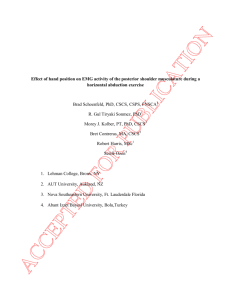Deltoid Muscle
advertisement
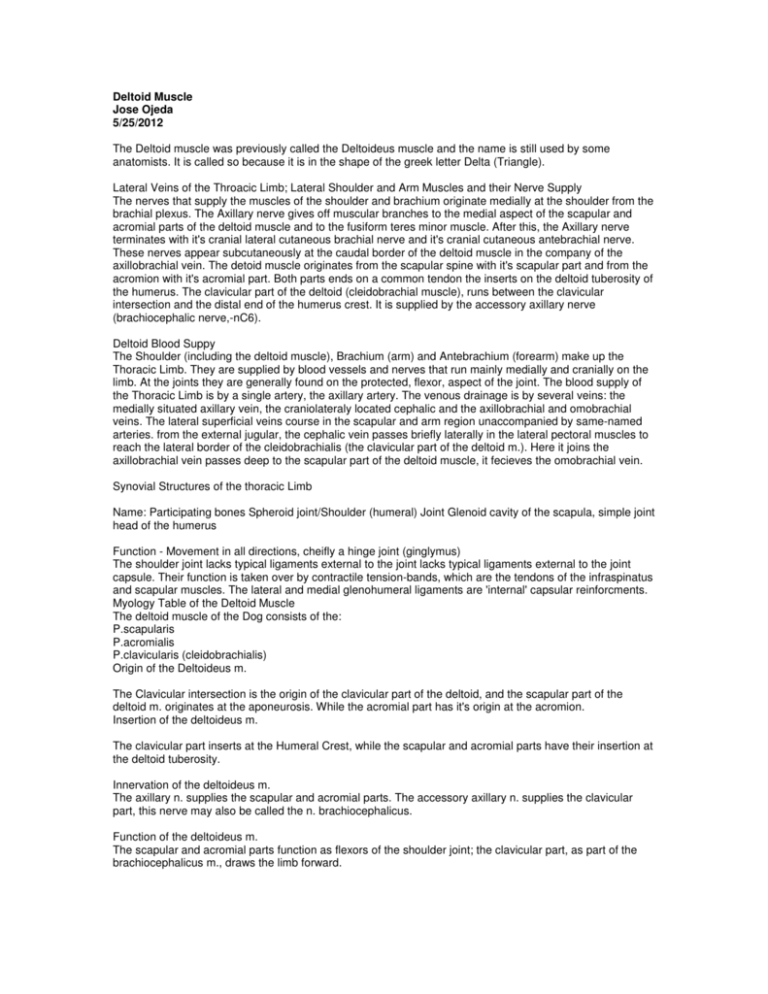
Deltoid Muscle Jose Ojeda 5/25/2012 The Deltoid muscle was previously called the Deltoideus muscle and the name is still used by some anatomists. It is called so because it is in the shape of the greek letter Delta (Triangle). Lateral Veins of the Throacic Limb; Lateral Shoulder and Arm Muscles and their Nerve Supply The nerves that supply the muscles of the shoulder and brachium originate medially at the shoulder from the brachial plexus. The Axillary nerve gives off muscular branches to the medial aspect of the scapular and acromial parts of the deltoid muscle and to the fusiform teres minor muscle. After this, the Axillary nerve terminates with it's cranial lateral cutaneous brachial nerve and it's cranial cutaneous antebrachial nerve. These nerves appear subcutaneously at the caudal border of the deltoid muscle in the company of the axillobrachial vein. The detoid muscle originates from the scapular spine with it's scapular part and from the acromion with it's acromial part. Both parts ends on a common tendon the inserts on the deltoid tuberosity of the humerus. The clavicular part of the deltoid (cleidobrachial muscle), runs between the clavicular intersection and the distal end of the humerus crest. It is supplied by the accessory axillary nerve (brachiocephalic nerve,-nC6). Deltoid Blood Suppy The Shoulder (including the deltoid muscle), Brachium (arm) and Antebrachium (forearm) make up the Thoracic Limb. They are supplied by blood vessels and nerves that run mainly medially and cranially on the limb. At the joints they are generally found on the protected, flexor, aspect of the joint. The blood supply of the Thoracic Limb is by a single artery, the axillary artery. The venous drainage is by several veins: the medially situated axillary vein, the craniolateraly located cephalic and the axillobrachial and omobrachial veins. The lateral superficial veins course in the scapular and arm region unaccompanied by same-named arteries. from the external jugular, the cephalic vein passes briefly laterally in the lateral pectoral muscles to reach the lateral border of the cleidobrachialis (the clavicular part of the deltoid m.). Here it joins the axillobrachial vein passes deep to the scapular part of the deltoid muscle, it fecieves the omobrachial vein. Synovial Structures of the thoracic Limb Name: Participating bones Spheroid joint/Shoulder (humeral) Joint Glenoid cavity of the scapula, simple joint head of the humerus Function - Movement in all directions, cheifly a hinge joint (ginglymus) The shoulder joint lacks typical ligaments external to the joint lacks typical ligaments external to the joint capsule. Their function is taken over by contractile tension-bands, which are the tendons of the infraspinatus and scapular muscles. The lateral and medial glenohumeral ligaments are 'internal' capsular reinforcments. Myology Table of the Deltoid Muscle The deltoid muscle of the Dog consists of the: P.scapularis P.acromialis P.clavicularis (cleidobrachialis) Origin of the Deltoideus m. The Clavicular intersection is the origin of the clavicular part of the deltoid, and the scapular part of the deltoid m. originates at the aponeurosis. While the acromial part has it's origin at the acromion. Insertion of the deltoideus m. The clavicular part inserts at the Humeral Crest, while the scapular and acromial parts have their insertion at the deltoid tuberosity. Innervation of the deltoideus m. The axillary n. supplies the scapular and acromial parts. The accessory axillary n. supplies the clavicular part, this nerve may also be called the n. brachiocephalicus. Function of the deltoideus m. The scapular and acromial parts function as flexors of the shoulder joint; the clavicular part, as part of the brachiocephalicus m., draws the limb forward. Referenced from The Vet Book - The Anatomy of the Dog by Klaus-Dieter Budras, Patrick H. McCarthy, Wolfgang Fricke, Renate Richter with Aron Horowitz and Rolf Berg
